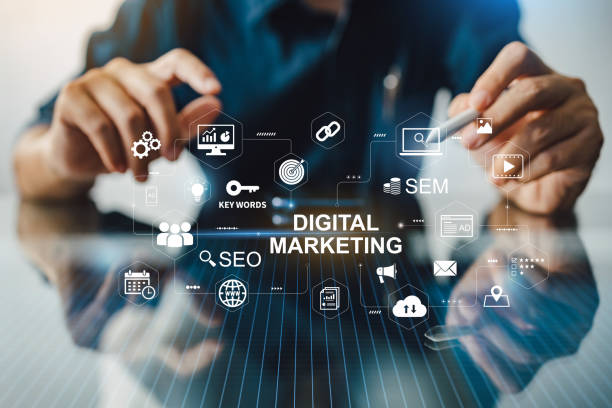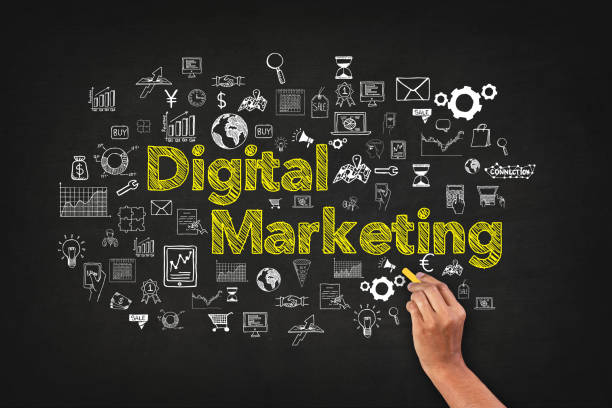what is Digital Marketing ?

- The term “Digital Marketing” describes the practice of promoting goods and services through internet platforms and technologies. Unlike traditional marketing, which involves methods like print ads or TV commercials, digital marketing leverages the internet, mobile devices, social media, search engines, and other digital channels to reach consumers. The primary goal is to connect with customers where they spend most of their time – online.
Why Is Digital Marketing Important?
In today’s digital age, people spend a significant portion of their time online, whether it’s browsing social media, checking emails, or shopping. Businesses must be where their audience is, and that’s primarily in the digital space. Digital marketing allows companies to target their audience more precisely, engage with them in real-time, and track the effectiveness of their marketing efforts with advanced analytics.
Types of Digital Marketing
Digital marketing comes in many forms, each with unique benefits and strategies. Let’s explore some of the most common types:
-
Search Engine Optimization (SEO)
-
- Optimizing your website for search engines means raising its position on search engine results pages (SERPs). By improving your site’s visibility through relevant keywords, high-quality content, and backlinks, you increase the chances of attracting organic traffic. A well-executed SEO strategy can lead to sustainable long-term growth without relying on paid advertising.
-
-
Content Marketing
The goal of content marketing is to draw in and keep a target audience by producing and sharing insightful information.This can include blog posts, articles, videos, infographics, eBooks, and more. The goal is to provide useful information that addresses customer pain points, positioning your brand as an authority in your industry. When done right, content marketing can build trust and brand loyalty.
-
-
-
Social Media Marketing
Social media marketing involves using platforms like Facebook, Instagram, Twitter, LinkedIn, and TikTok to promote products or services. Businesses can use paid ads or organic posts to connect with their audience. Social media marketing allows companies to engage with their customers directly, fostering a sense of community and enhancing brand awareness.
-
-
-
Email Marketing
Email marketing is a highly effective way to nurture relationships with both prospective and current customers. Through personalized email campaigns, businesses can send targeted messages to their audience. These campaigns can include promotions, newsletters, or exclusive offers, all aimed at driving engagement and conversions.
-
-
-
Pay-Per-Click (PPC) Advertising
PPC advertising is a paid marketing strategy where advertisers pay a fee each time their ad is clicked. Platforms like Google Ads allow businesses to bid on keywords related to their offerings, ensuring that their ads appear at the top of search results. PPC is an excellent way to generate immediate traffic and leads.
-
-
-
Affiliate Marketing
In affiliate marketing, businesses partner with individuals or other companies (affiliates) to promote their products or services.Affiliates receive a commission for each lead or sale that results from their recommendations. This type of marketing is performance-based, making it a cost-effective way to expand your reach.
-
-
-
Examples of Digital Marketing in Action
-
-
- SEO Example: A local bakery optimizes its website with keywords like “best cupcakes in [city]” to rank higher on Google and attract nearby customers.
-
- Social Media Example: A clothing brand uses Instagram influencers to promote their latest collection, creating buzz among their target audience.
-
- Email Marketing Example: An eCommerce store sends personalized discount offers to its subscribers, encouraging them to complete their purchases.
-
- Any company hoping to prosper in the cutthroat business environment of today needs to invest in digital marketing. By leveraging strategies like SEO, content marketing, social media, and email marketing, companies can effectively engage with their audience, build brand loyalty, and drive conversions. As technology evolves, so too will digital marketing, making it crucial for businesses to stay adaptable and forward-thinking.

